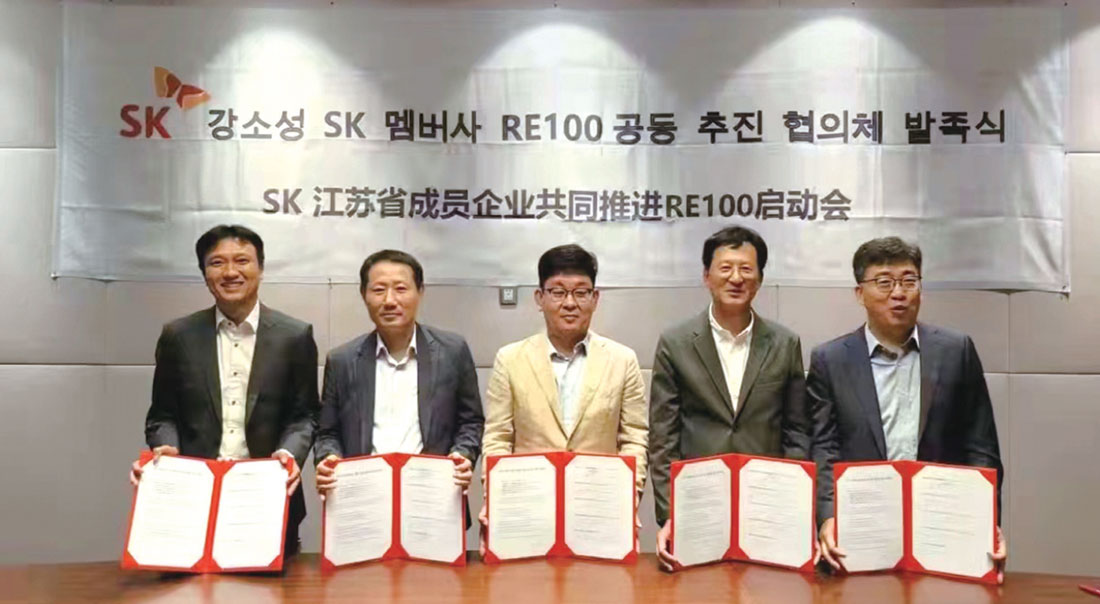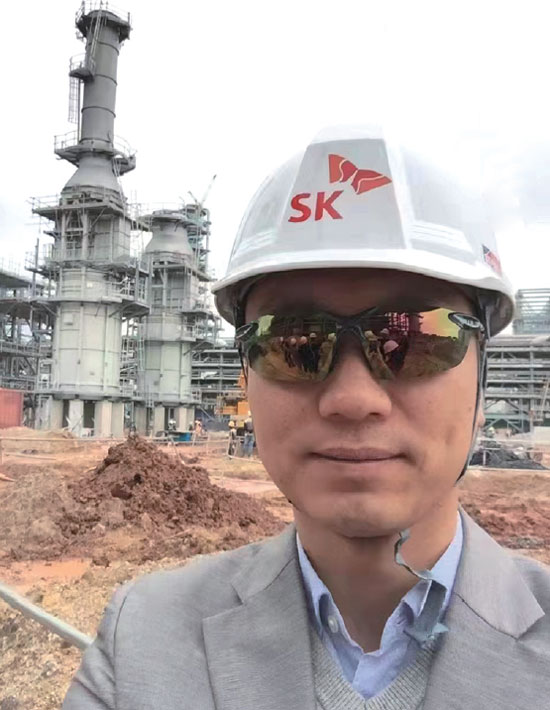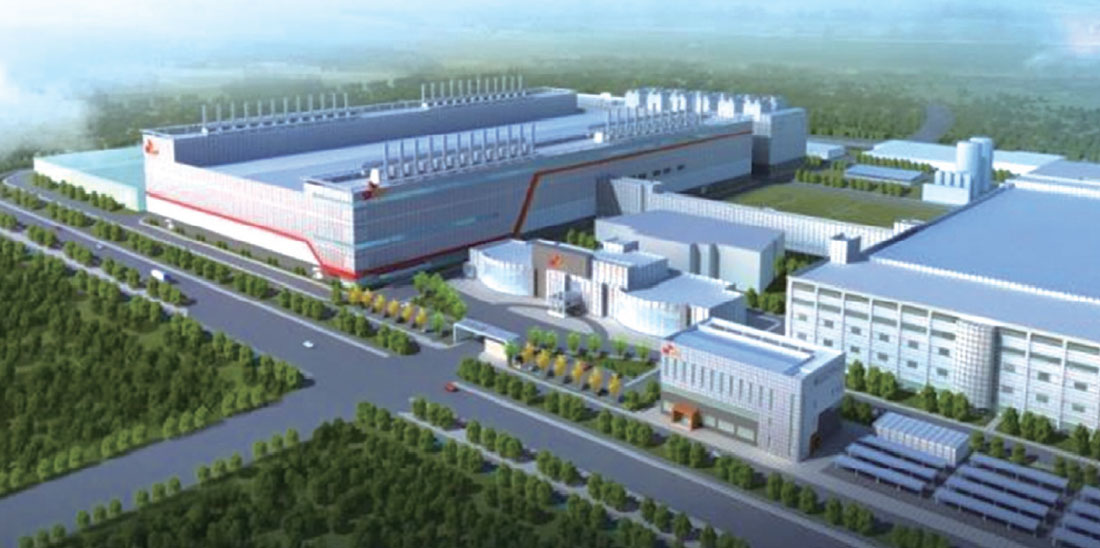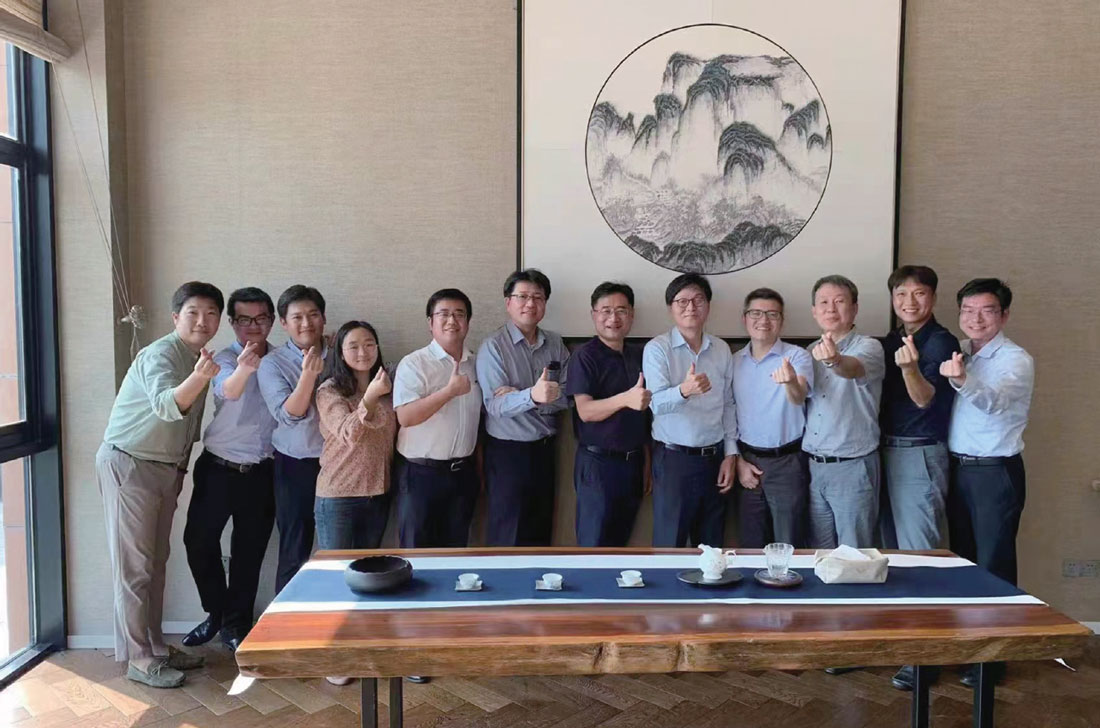
Mr. Charles Lee, who has been purchasing products in the Chinese market for nearly 20 years, clearly knows that the huge Chinese market boasts unique advantages and development potential. However, the same market is also complex, changeable,
and faces future challenges.
By Hong Wang
Mr. Lee should know as he is heading SK Engineer-ing & Construction’s (SK E&C) Shanghai Procurement Center and Nanjing Company.
He is in charge of purchasing for overseas and domestic projects and his rich working experience has contributed to a profound insight and understanding of supplier selection based on the needs of various projects in many industries, from the traditional oil and gas industry to the green energy industry represented by hydrogen energy.
Huge potential
Since he is very familiar with the Chinese market and suppliers, people sometimes forget that Charles originally is from South Korea. During the communication with Charles, we found that many of Valve World’s old friends are also his old friends. After completing his postgraduate study in 2004, Charles came to Shandong, China from South Korea, working in the environmental protection sector. Soon after his arrival in China, the rapid development and huge potential of the Chinese market convinced him that this country would provide him with more room for growth.
In 2007, he joined SK, where he worked as a field engineer, then joining the Overseas Business Development Department, which is mainly responsible for the development of new business in China. SK Group always attaches great importance to its investment in the Chinese market. Accordingly, thanks to his technical background and negotiation skills, Charles was officially sent to China in 2010 and participated in the establishment of SK E&C Procurement Center in Shanghai.
Stereotype

When mentioning the characteristics of Chinese suppliers, Charles smiles, “It takes a lot of effort to truly gain knowledge and insight about the Chinese market.” He states that, in the early stage of working as a purchaser, he and his colleagues inevitably had doubts about made-in-China products due to the certain degree of “stereotype.”
However, the orders placed with Chinese suppliers brought him a new understanding, or more precisely, “recognition” of Chinese manufacturing. SK purchases a wide range of products in the Chinese market, including valves, pipes, pipe fittings, steel structures, pumps, cooling towers, pressure vessels, heat exchangers, instrument cabinets and control cabinets. Charles shared many stories of dealing with Chinese suppliers, from evaluation, placing orders and using Chinese products to establishing a long-term cooperation and seeking win-win results.

Price a major factor
“At first, we mainly purchased carbon steel pipe fittings, especially seamless pipes, from the Chinese market. They were mainly purchased for overseas projects. Undeniably, the price was a major factor when we started sourcing from China. At that time, South Korea didn’t produce such products, and the products from Europe, America or agents were extremely expensive. Therefore, we chose Chinese enterprises from the list of suppliers approved by the project owner. SK always has a prominent position in the oil refining sector. This was also the reason for establishing an office in China.”
In the early days, outsiders generally had some concerns about Chinese products. Take welding as an example, many companies didn’t trust Chinese companies’ welding performance, especially nondestructive testing (NDT) capabilities and reports. Therefore, when we started to cooperate with Chinese suppliers, we conservatively chose steel structure products.”
Trust
“In fact, we wanted to further assess Chinese enterprises’ welding technology and workers’ production skills through such cooperation”, Charles continues. “At that time, we had a steel structure order. We selected one company from China, South Korea, the Philippines and the project location respectively. The order given to the Chinese supplier was the smallest among the four suppliers, but it turned out that the Chinese supplier delivered the best quality within the given deadline so we increased the order quantity. Through this cooperation, we and the Chinese supplier established a good trust-based and cooperative relationship. For over ten years this Chinese supplier has cooperated with us on many projects, becoming a stable, long-term supplier.”
Supply chain control
As mentioned before, Charles speaks highly of Chinese suppliers and their production performance, especially in static equipment. “Chinese suppliers have a good control over their supply chains and transportation systems, which greatly improves their operational efficiency. In addition, they have their own excellent equipment capabilities and their employees are highly specialized, which fully guarantees product quality. Besides, third-party testers’ sense of responsibility is also a major reason why I highly appreciate Chinese manufacturing. Thanks to this, production technicians can devote more attention and energy to detail, such as dimensions and precision.”

Diversification
SK E&C has been using Chinese valves for nearly 20 years and has witnessed the growth of many of its partners. “At first, we did choose them in view of the price advantage. At that time, we mainly purchased car-bon steel valves, especially gate valves and shut-off valves, which are not difficult to produce, and the order quantities were not very high. Years of cooperation have shown that the suppliers are growing very fast, not only continuously upgrading their technology, but also maintaining their efficiency and quality. Their ongoing optimization of cost-effectiveness has convinced us to gradually diversify Chinese valve products, no longer just basic types of valves. So far, we have transited to ‘framework’-based collaborative bidding. This is a significantly more win-win strategic cooperation mode.”
Green energy
In recent years, many enterprises have been transforming themselves due to the generally increasing emphasis on environmental protection and clean energy.
SK is no exception as the company mainly focuses on green chemistry and clean energy. In terms of the challenges brought by the transformation, Charles remarked, “SK has been preparing for the new energy business for a long time and has been continuously increasing its project investment. In this process, the main challenge is that the emergence of new technologies has set new requirements for supply chains. For example, in the transition to a low-carbon economy, the demand for crystalline stones is increasing; low-temperature sealing necessary for hydrogen energy raises higher requirements for pipelines; and the requirements for valve volume and automation degree are more stringent.
Terra incognita
The emergence of new technologies is a challenge directly facing the purchasing staff, Charles states. “The purchasers are familiar with the workflows of traditional petrochemical projects, and they are familiar with many high-quality, reliable suppliers. However, in the face of new projects, such as suspenders for offshore wind power generation, we need to study from the beginning; what’s more, no mature, authoritative criteria are available for reference in some industries or technologies. Therefore, we have a double challenge. But I think the emergence of new technologies and new industries brings more severe challenges to suppliers. Therefore, as an EPC company, we hope to maintain close communication, conduct joint research from the beginning of design, explore the best solutions and meet the challenges with suppliers.”
Focus of procurement in the new year
Regarding the focus of future work, Charles says that “ESG (Environment, Social Responsibility and Corporate Governance) has always been the focus of our work. In particular, environmental protection is the top priority of our development this year and even in the future. SK will continue to increase its investment in green energy, including solar power generation. Another important thing is the successful completion of the projects we are currently working on, including the lithium-ion battery factory, the semiconductor factory, the chemical plant and the project we run with BP in Yantai.”
Impact of the pandemic
To conclude the interview, Charles mentions the challenge to source materials and products in the current climate. “This year, especially in the field of raw materials, China’s competitiveness has weakened. Therefore, we will focus on purchasing products with relatively high requirements for technical capabilities and workers’ skills. Of course, the impact of the epidemic can’t be underestimated. As the epidemic has immensely exposed the risks of a single supply chain, we need to make parallel arrangements also for the procurement system, so as to be more fully prepared for possible conditions.”
SK Engineering & Construction (SK E&C)
Established in 1977, SK E&C mainly engages in complete sets of equipment, EPC, civil engineering (infrastructure construction), real estate development and other businesses at home and abroad. In 2020, the company had total assets of RMB 26 billion Yuan (EUR 3,6 billion) and achieved sales of RMB 38.1 billion Yuan (EUR 5,3 billion).
SK E&C has been transitioning from “quantity-based growth to quality perfection”, pursuing the transformation from a Global EPC enterprise to a Global Total Solution Provider, and moving towards the vision of becoming a world-class urban development and Infra construction company.
In May 2021, SK E&C changed its name to SK ECO Plant, embarking on a new journey. Based on its existing construction business, SK ECO Plant, as an environmental and energy solutions provider, will expand its investment portfolio and “proactively rise to the challenge of restoring the environment to the desired appearance”.
The company’s new and renewable energy business unit will continue the hydrogen fuel cell business, the solar energy business, the offshore wind power business, etc. to provide solutions to accelerating green energy supply and realizing national carbon neutrality (Net Zero), thus contributing to sustainable development.


